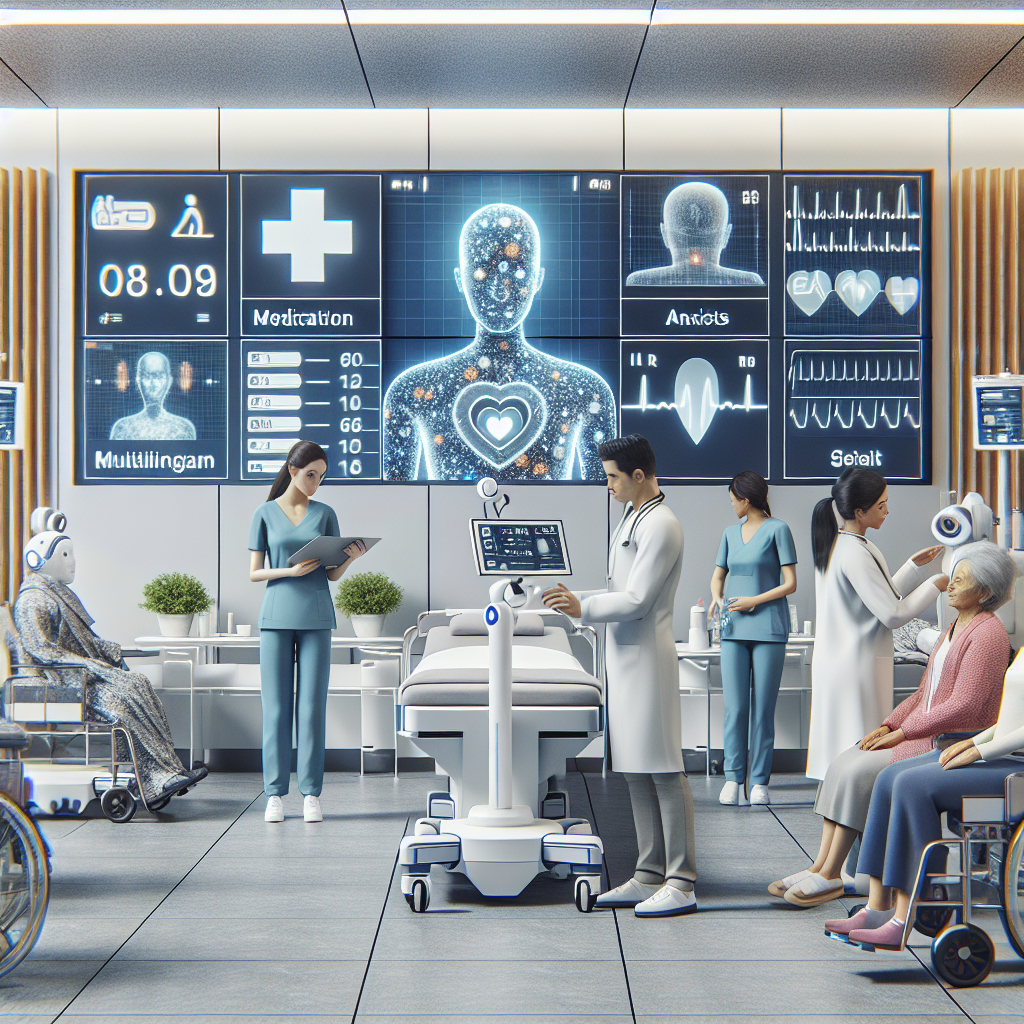AI Enhances Asan Medical Center’s Patient Services
In the bustling heart of Seoul, a curious scene unfolds at Asan Medical Center (AMC). A diverse group of patients, from different corners of the world, navigates their journeys to seek world-class medical attention. However, what sets AMC apart is not just its acclaimed expertise, but the revolutionary integration of artificial intelligence to streamline international patient services. This leap forward promises to reshape global healthcare interactions.
The Journey Towards Technological Integration
Asan Medical Center, a leading healthcare institution in South Korea, has always been at the forefront of adopting cutting-edge technologies. In recent years, the rise of artificial intelligence has transformed various industries, and healthcare is no exception. AMC’s adoption of AI in its patient services signals a pivotal step in the institution’s long history of technological advancement.
Streamlining Patient Services Through AI:
–
- Language Processing: The use of AI-powered natural language processing (NLP) allows for seamless communication between the hospital staff and international patients, eliminating language barriers that have long posed challenges in patient care.
–
- Automated Scheduling: AI algorithms optimize appointment scheduling to ensure efficient time management and reduced waiting times for international patients.
–
- Tailored Healthcare Solutions: AI tools analyze patient data to recommend personalized healthcare plans, aligning services with specific patient needs and medical histories.
Impact on International Patients
The incorporation of AI into patient services at AMC is not just a technological upgrade—it’s a commitment to enhancing the patient experience. For international patients, AI means:
- Enhanced Understanding: Language barriers dissolve, allowing for clear, thorough communication.
- Improved Efficiency: Streamlined processes reduce delays and enhance overall patient satisfaction.
- Personalized Care: Data-driven insights lead to more accurate diagnoses and treatment plans.
Breaking Down Language Barriers: AI’s ability to process languages accurately is a game-changer. This capability ensures that patients receive information in their native languages, leading to better comprehension and facilitating informed decision-making.
The Broader Implications for Healthcare
AMC’s successful AI integration is likely to inspire other institutions in adopting similar technologies, guiding the future of healthcare towards more patient-centric models.
–
- Global Healthcare Collaboration: This initiative sets a precedent for collaborative efforts in healthcare, emphasizing the importance of integrating technology to enhance patient care.
–
- Increased Access to Quality Care: By reducing logistical and communicational hurdles, AI paves the way for broader access to quality healthcare services worldwide.
Challenges and Considerations
While AI brings numerous advantages, its implementation is not without challenges. Concerns regarding data privacy, ethical use of technology, and the need for continuous system updates and training highlight the complexities of integrating AI in healthcare.
Addressing Ethical Concerns:
- Ensuring patient data privacy and secure handling remains paramount.
- Continuous evaluation of AI systems to maintain ethical standards.
Conclusion
The integration of AI at Asan Medical Center represents a transformative approach to healthcare. As technology continues to evolve, the possibilities for improved patient care are limitless. AMC’s dedication to leveraging AI not only enriches the patient experience but also sets an inspiring benchmark for healthcare systems globally. Through AI, the future of patient-centered, efficient, and accessible healthcare is not just anticipated—it’s now within reach.

